|
If you're looking for a short but fun-sounding Processional or Recessional (Prelude or Postlude), you will enjoy this Promenada Piccola, Op. 138. It's written in the key of F Major and features dancing syncopating rhythms, colourful harmonies and effective but accessible pedal line. Vidas dedicated it to Renāte Stivriņa and Jakub Wszołek on the occasion of their engagement. Hope you will enjoy it! Score: www.sheetmusicplus.com/title/promenada-piccola-op-138-organ-solo-by-vidas-pinkevicius-2022-digital-sheet-music/22309065?aff_id=454957 Score: secrets-of-organ-playing.myshopify.com/products/promenada-piccola-op-138-organ-solo-by-vidas-pinkevicius-2022?utm_source=copyToPasteBoard&utm_medium=product-links&utm_content=web Score: www.sheetmusicdirect.com/en-US/se/ID_No/1151115/Product.aspx We support Ukraine: www.blue-yellow.lt/en If you like what I do, you can buy me some coffee: www.buymeacoffee.com/organduo PayPal: PayPal.Me/ausramotuzaite My Hauptwerk setup: www.organduo.lt/tools.html Total Organist - the most comprehensive organ training program online: www.organduo.lt/total-organist Secrets of Organ Playing - When You Practice, Miracles Happen! organduo.lt Listen to my organ playing on Spotify: open.spotify.com/artist/2pXxZgiFPMKiqBRYi9rSLT?si=Xe1nTroTSmOGPtv8bP8MSw
Comments
This meditation is based on one of the most beloved hymn tunes of all times - Amazing Grace. It is designed to be played on a two-manual and pedal organ. The tune migrates from F Major to Ab major and back to F Major. Musical fabric is unified by a two-measure refrain. This piece will work for liturgical purposes and concert programs very well whenever contemplative mood is needed. Dedicated to Rien Schalkwijk. Listen to his lovely rendition here: www.youtube.com/watch?v=nuVKCO5YJYw Score: www.sheetmusicplus.com/title/meditation-on-amazing-grace-op-148-organ-solo-by-vidas-pinkevicius-2022-digital-sheet-music/22322347?aff_id=454957 Score: secrets-of-organ-playing.myshopify.com/products/meditation-on-amazing-grace-op-148-organ-solo-by-vidas-pinkevicius-2022?utm_source=copyToPasteBoard&utm_medium=product-links&utm_content=web Score: www.sheetmusicdirect.com/en-US/se/ID_No/1162160/Product.aspx We support Ukraine: www.blue-yellow.lt/en If you like what I do, you can buy me some coffee: www.buymeacoffee.com/organduo PayPal: PayPal.Me/VPinkevicius My Hauptwerk setup: www.organduo.lt/tools.html Total Organist - the most comprehensive organ training program online: www.organduo.lt/total-organist Secrets of Organ Playing - When You Practice, Miracles Happen! organduo.lt Listen to my organ playing on Spotify: open.spotify.com/artist/0ckKPIvTWucoN3CZwGodCO?si=YWy7_0HqRvaZwBcovL-RKg
Vidas: Hello and welcome to Secrets of Organ Playing Podcast!
Ausra: This is a show dedicated to helping you become a better organist. V: We’re your hosts Vidas Pinkevicius... A: ...and Ausra Motuzaite-Pinkeviciene. V: We have over 25 years of experience of playing the organ A: ...and we’ve been teaching thousands of organists online from 89 countries since 2011. V: So now let’s jump in and get started with the podcast for today. A: We hope you’ll enjoy it! V: Hi guys! This is Vidas. A: And Ausra. Vidas: Let’s start episode 694 of Secrets of Organ Playing Podcast. This question was sent by Ed, who is our Total Organist student, and a few days ago, he wrote a nice feedback about our program and a few things that might be improved, so, things like organization of the files, training materials in the Total Organist program, or adding a search box on the blog archives according to month, or categories for blog posts, so we’re working on that. Ausra: Oh yes! We are! Vidas: Ausra is doing categories since 2014—that’s a lot of work—and I’m presently occupied with organizing material in the Total Organist dashboard. I’ve already done beginner’s material and am working through various other levels, so that people, students, would find it easier to navigate and find what they’re looking for. Ausra: Yes, so we very much appreciate your comments and your advice. Vidas: And Ed writes, now, a question, and it could be used for our conversation, I think. So he writes: “You asked me to get back to you about what I’m practicing, and I had to wait a few days to figure out how to explain this. As I mentioned in my prior email I have a masters degree in organ performance from many years ago, and then let it lapse for several decades. Now that I’m retired I’m trying to make the magic happen again, and it’s been challenging to figure out how to put the pieces back together. My technique has really slipped a good bit, most of my repertoire is rusty, and if I’m not careful I can get pretty discouraged. One thing that has helped me is that I put together the attached spreadsheet. I took several days to go through all the music in the boxes to try to remember what I had learned already. I even found pieces that clearly I had played because my handwriting is all over the paper, yet I could not remember anything about the piece. I put all this information into a spreadsheet to help me understand my priorities and the current state of each of the pieces I was working on. It’s been very helpful to keep my focus to resurrect all of the things I’ve learned already well while still branching into some new material. I’m in a good daily routine now. I spend about 30 minutes split between Hanon and the Davis textbook pedal exercises to get my dexterity back, and then I look through this repertoire list and pick some things that I’m interested in moving up on the current status list. I get pretty tired by mid afternoon, so I save the evening for watching YouTube videos from your site. I also got a copy of the New Oxford Organ Method which I find delightful. One chapter a day seems to be good to remind me of what I used to know. Keep up the great work. Every hour you put into organization is going to have tremendous benefits and increase the availability and respect for what you’ve done. Thanks so much. Take care, Ed” Vidas: So let’s take a look a little bit about in that spreadsheet. Okay? Ausra: Okay. Vidas: You will find interesting, I think, his repertoire selections and how he organizes. I found it interesting in the morning, so I will show you. Here is this list. Basically, we can see a lot of Bach’s works, Ausra: Oh yes, Vidas: ...a few Pachelbel’s, Walcha’s, a few of Vierne’s works, a few Chorales by Brahms. Right? Most of these are Chorale-based works by Bach and Preludes and Fugues from the “Eight Short Preludes and Fugues” collection. Right? And he writes next to the title, “Composer,” that’s one column, “Designator,” meaning Bach’s catalog number or Opus number for Brahms, then the source, and he lists as the source… I think the source is various books he uses so he can find it, and then priority from 1 to 5, and status from 1 to 5, and date from he practiced, and the last column he wrote examples that he found in YouTube videos by other people. Ausra: Nice! Very well organized. Vidas: It’s well organized! Ausra: I could probably never do things like that. Vidas: We could look at the rating in one of the columns. From 1 to 5, number 1 means ready to perform, random minimal errors. Number 2, minor consistent errors. Need work, but could be ready in one week. Number 3, multiple sections need practice but could be ready in several weeks. Number 4, major practice needed, could be ready in one month. Number 5, challenging. Needs major work on all sections. Ausra: Okay. Vidas: Alright? So if we could take a look at the pieces again, this is status. Right? Status for example number 2 “Liebster Jesu, Wir Sind Hier.” BWV 731. It’s status 2 and it means “with minor consistent errors, need work but could be ready in one week. Make sense? Ausra: Yeah, sure. Vidas: Or let’s say number 3. “Ich ruf zu dir, Herr Jesu Christ, BWV 639,” it’s rating is number 3, so multiple sections need practice but could be ready in several weeks, and so on. Right? For example, number 5 is a few pieces by Brahms, “Herzlich tut mich verlangen” or “Traurigkeit,” which means challenging and needs major work in all sections, more than one month. Ausra: Nicely organized, although I have one suggestion for Ed. You know? Vidas: Okay! Ausra: Well, if I were in his shoes, I might look for a new repertoire and not worry so much about pieces pieces that he had learned many decades ago, because sometimes to learn new pieces is easier and more exciting than to go back so long time ago. Vidas: I agree in part with you, yeah. Ausra: And, you know, there are only a very few composers that he added to this list, so I would truly advise him to expand his repertoire and to look to other composers. There are a lot of Bach on his list, but, for example, I don’t see any of Buxtehude. Vidas: No Buxtehude, yeah. Ausra: And I think it would be a great choice, because they are technically less challenging, but you know, equally beautiful. Vidas: Yeah, that’s right. Then he writes in the next column “sources,” abbreviations of the sources, so I could actually read through his sources list. “Widor-Schweitzer complete set,” “Twelve Easy Chorale Preludes,” “A Treasury of Shorter Organ Classics,” “Franck :Complete Works for Organ,” “Helmut Walcha: Chorale Preludes,” “Twenty-four pièces en style libre,” basically the Vierne collection, “Brahms: Complete Organ Works,” “Pachelbel: Selected Organ Works,” “Eighty Chorale Preludes from German Masters of the 17th and 18th Centuries,” “Flor Peeters: 10 Chorale Preludes,” “Flor Peeters: 10 Chorale Preludes on Gregorian Hymns,” and “Historical Organ Recitals,” Bonnet, probably. Okay, so these are the sources that he had at his disposal many years ago, and probably Ed resurrected that list, these collections, and found them useful. And let’s take a look also at things that might be improved. Like you say, expanded repertoire, Ausra: Yes. Vidas: He could take a look at our training materials on Total Organist. We are focusing now and actually we have a lot of materials now there, and while it’s being still categorized better than in levels of difficulty, not just basic material, intermediate and advanced, or beginner level, but we are organizing it according to historical periods like Baroque, Romantic, Modern, or other categories like technique, practice, for each level of difficulty. Yeah? So that people could easily find… or music theory, harmony, Ausra: Yes, that’s right Vidas: ...improvisation, so people will find it easier to navigate, and of course Ed could take advantage of those enormous material lists that we have. Did you notice anything else that could be improved for in his practice, while I was reading, maybe, his letter? Ausra: As I mentioned before, I would really add new composers to his list. Vidas: Mhmm Ausra: For example, if we are talking about Romantic music, okay, I saw the Brahms, but you know if you are more interested in like German Romantic music, you could always add Liszt, Mendelssohn, to this list Rheinberger, Vidas: Rheinberger, yes, very useful, too. Ausra: Yes, and you know, if he put on his list Vierne, so maybe look at Widor, maybe look at the earlier French masters like César Franck… so… what else? Vidas: Merkel Trios, we have fingering for them, too. Ausra: Yes. Obviously. Vidas: Gustav Merkel. So basically we are doing a lot of materials that we are playing ourselves, and as we are expanding our repertoire, we let you on this journey, too, while making fingering and pedaling available, and of course, we are very grateful for people on our team like Juan and Jeremy who are helping us to transcribe those fingerings and make it into a nice neat collection, edition, edited for you to use, and that’s all available and included in your Total Organist membership. So it’s really, really exciting that Ed has found this site really useful, and it’s been really an eye opening to read his feedback, Ausra: Sure! Vidas: How he values what we do, and how he uses that material. For example, I didn’t realize that people are actually looking for specific blog posts on our site, https://organduo.lt. Right? Through 11 years of work, we have produced thousands, several thousands of blog posts. Right? And the majority of them are still uncategorized, so it would have been difficult to find. But now, since there is this search box on the right-hand column on the top, you could easily insert any keyword that you want, any word, any phrase that you’re looking for, and it will probably find some hits as you press enter. Ausra: And I’m planning to finish this work by New Year. Vidas: That’s very fast. Maybe take it easy, Ausra! She’s very hard working, but I don’t want her to overextend herself, and still she needs to practice and to relax and do some other things, too, in her day, not only this archival work. Ausra: Well, yes. Vidas: Alright, wonderful! We hope this was useful to Ed and maybe to others who are planning to do Total Organist but were maybe hesitant before. So take a look, we are actually improving it, and every day, thinking how can we help better on this organ playing journey. Ausra: Yes, and how can we improve it. Vidas: Yeah. So, take care, and please send us more of your questions; we love helping you grow. And remember, when you practice, Ausra: Miracles happen! V: This podcast is supported by Total Organist - the most comprehensive organ training program online. A: It has hundreds of courses, coaching and practice materials for every area of organ playing, thousands of instructional videos and PDF's. You will NOT find more value anywhere else online... V: Total Organist helps you to master any piece, perfect your technique, develop your sight-reading skills, and improvise or compose your own music and much much more… A: Sign up and begin your training today at organduo.lt and click on Total Organist. And of course, you will get the 1st month free too. You can cancel anytime. V: If you need one-on-one coaching, you can check out our page on Buy Me a Coffee platform. A: Find out more at https://buymeacoffee.com/organduo This is my first attempt to revive my recorder playing (hopefully not the last one). Since I was 8 years old, I played the recorder for fun until I went to study organ in the Lithuanian Music Academy. My skills are a little rusty, of course, but I hope to improve. Vidas and I would like to dedicate this video of Silent Worship by George Frideric Handel to our friends Leysa and James Flores! To Leysa because she likes the music from period drama and to James because he recorded this beautiful aria on his channel first. He was joking that Vidas and I should sing it but we got a better idea by playing recorded and our little pipe organ from home. By the way, making music at home together is one of our greatest joys in life. Check out James' video: www.youtube.com/watch?v=MmY3b6eMoBk Visit Leysa's channel: www.youtube.com/channel/UCP56ZVJ_SdbNGX_c6ZTDNIA Visit James' channel: www.youtube.com/c/JamesFloresOrganist We support Ukraine: www.blue-yellow.lt/en If you like what I do, you can buy me some coffee: www.buymeacoffee.com/organduo PayPal: PayPal.Me/ausramotuzaite My Hauptwerk setup: www.organduo.lt/tools.html Total Organist - the most comprehensive organ training program online: www.organduo.lt/total-organist Secrets of Organ Playing - When You Practice, Miracles Happen! organduo.lt Listen to my organ playing on Spotify: open.spotify.com/artist/2pXxZgiFPMKiqBRYi9rSLT?si=Xe1nTroTSmOGPtv8bP8MSw Today I'd like to share this beautiful Trio No. 3 in Eb Major, Op. 23 by German Romantic composer Wilhelm Rudnick. I have recorded this piece on Hauptwerk Utrecht Dom sample set. Hope you will enjoy it! Score: www.sheetmusicplus.com/title/selected-organ-pieces-digital-sheet-music/21907667?aff_id=454957 We support Ukraine: www.blue-yellow.lt/en If you like what I do, you can buy me some coffee: www.buymeacoffee.com/organduo PayPal: PayPal.Me/VPinkevicius My Hauptwerk setup: www.organduo.lt/tools.html Total Organist - the most comprehensive organ training program online: www.organduo.lt/total-organist Secrets of Organ Playing - When You Practice, Miracles Happen! organduo.lt Listen to my organ playing on Spotify: open.spotify.com/artist/0ckKPIvTWucoN3CZwGodCO?si=YWy7_0HqRvaZwBcovL-RKg This is an organ duet arrangement of polychoral motet for 8 voices by Hieronymus Praetorius "Ecce Dominus Veniet". It can be played by two organists on an organ with two manuals and pedals. To enhance the instrumental texture and make it more idiomatic to the organ, lots of diminutions were added. Score: www.sheetmusicplus.com/title/ecce-dominus-veniet-organ-duet-digital-sheet-music/22357658?aff_id=454957 Score: secrets-of-organ-playing.myshopify.com/products/ecce-dominus-veniet-organ-duet-by-hieronymus-praetorius?utm_source=copyToPasteBoard&utm_medium=product-links&utm_content=web Score: www.sheetmusicdirect.com/en-US/se/ID_No/1207300/Product.aspx We support Ukraine: www.blue-yellow.lt/en If you like what I do, you can buy me some coffee: www.buymeacoffee.com/organduo PayPal: PayPal.Me/VPinkevicius My Hauptwerk setup: www.organduo.lt/tools.html Total Organist - the most comprehensive organ training program online: www.organduo.lt/total-organist Secrets of Organ Playing - When You Practice, Miracles Happen! organduo.lt Listen to my organ playing on Spotify: open.spotify.com/artist/0ckKPIvTWucoN3CZwGodCO?si=YWy7_0HqRvaZwBcovL-RK This Trio No. 2 in G Minor, Op. 23 by German Romantic composer Wilhelm Rudnick is very beautiful, full of unexpected chromatic turns and twists. I have registered it with flutes 8, 4, 3, 2 plus the tremulant for the right hand part and flutes 8 and 4 for the left hand part. The pedals play with principals 16 and 8. I have recorded this piece on Hauptwerk Utrecht Dom sample set. Hope you will enjoy it! Score: www.sheetmusicplus.com/title/selected-organ-pieces-digital-sheet-music/21907667?aff_id=454957 We support Ukraine: www.blue-yellow.lt/en If you like what I do, you can buy me some coffee: www.buymeacoffee.com/organduo PayPal: PayPal.Me/VPinkevicius My Hauptwerk setup: www.organduo.lt/tools.html Total Organist - the most comprehensive organ training program online: www.organduo.lt/total-organist Secrets of Organ Playing - When You Practice, Miracles Happen! organduo.lt Listen to my organ playing on Spotify: open.spotify.com/artist/0ckKPIvTWucoN3CZwGodCO?si=YWy7_0HqRvaZwBcovL-RK I recently bought a collection of Wilhelm Rudnick's organ music, who was rather forgotten German Romantic composer. However, his pieces are very beautiful, charming and well-crafted. So I hope you will enjoy this Trio No. 1in Ab Major, Op. 23 which I have recorded on Hauptwerk Utrecht Dom sample set! Score: www.sheetmusicplus.com/title/selected-organ-pieces-digital-sheet-music/21907667?aff_id=454957 We support Ukraine: www.blue-yellow.lt/en If you like what I do, you can buy me some coffee: www.buymeacoffee.com/organduo PayPal: PayPal.Me/VPinkevicius My Hauptwerk setup: www.organduo.lt/tools.html Total Organist - the most comprehensive organ training program online: www.organduo.lt/total-organist Secrets of Organ Playing - When You Practice, Miracles Happen! organduo.lt Listen to my organ playing on Spotify: open.spotify.com/artist/0ckKPIvTWucoN3CZwGodCO?si=YWy7_0HqRvaZwBcovL-RKg In this meditation on the Christmas chorale In dulci jubilo, Op. 152 the melody is placed in the tenor range played by the left hand with a soft reed registration. The feet play long pedal points on 7 notes and the right hand part plays around the notes of G major scale with some interesting rhythms. It's a very easy piece, suitable both for liturgical purposes and for concert playing when more contemplative music is required. Score: secrets-of-organ-playing.myshopify.com/products/meditation-on-in-dulci-jubilo-op-152-organ-solo-by-vidas-pinkevicius-2022?utm_source=copyToPasteBoard&utm_medium=product-links&utm_content=web We support Ukraine: www.blue-yellow.lt/en If you like what I do, you can buy me some coffee: www.buymeacoffee.com/organduo PayPal: PayPal.Me/VPinkevicius My Hauptwerk setup: www.organduo.lt/tools.html Total Organist - the most comprehensive organ training program online: www.organduo.lt/total-organist Secrets of Organ Playing - When You Practice, Miracles Happen! organduo.lt Listen to my organ playing on Spotify: open.spotify.com/artist/0ckKPIvTWucoN3CZwGodCO?si=YWy7_0HqRvaZwBcovL-RKg Symphonic Poem "In the Forest" | Mikalojus Konstantinas Ciurlionis | Organ Duet | Pärnu, Estonia9/22/2022 Today is the birthday of Mikalojus Konstantinas Ciurlionis (1875-1911), the greatest Lithuanian artist of all time. On this occasion, we would like to share with you this video from our recent concert in Pärnu, Estonia where we played his Symphonic Poem "In the Forest" as organ duet on the historical Kolbe organ from 1928 at St Elisabeth church. The monumental composition was arranged for two pianos by Jonas Aleksa, edited by Ruta Riktere and Zbignevas Ibelhauptas. Thanks to Ines Maidre for invitation to play in this amazing church! Hope you will enjoy it! Score: https://www.mic.lt/lt/baze/klasikine-siuolaikine/natu-leidiniai/1472/ Published by Lithuanian Music Information Centre We support Ukraine: https://www.blue-yellow.lt/en If you like what I do, you can buy me some coffee: https://www.buymeacoffee.com/organduo PayPal: https://PayPal.Me/ausramotuzaite My Hauptwerk setup: https://www.organduo.lt/tools.html Total Organist - the most comprehensive organ training program online: https://www.organduo.lt/total-organist Secrets of Organ Playing - When You Practice, Miracles Happen! https://organduo.lt Listen to my organ playing on Spotify: https://open.spotify.com/artist/2pXxZgiFPMKiqBRYi9rSLT?si=Xe1nTroTSmOGPtv8bP8MS |
DON'T MISS A THING! FREE UPDATES BY EMAIL.Thank you!You have successfully joined our subscriber list.  Photo by Edgaras Kurauskas Photo by Edgaras Kurauskas
Authors
Drs. Vidas Pinkevicius and Ausra Motuzaite-Pinkeviciene Organists of Vilnius University , creators of Secrets of Organ Playing. Our Hauptwerk Setup:
Categories
All
Archives
July 2024
|
This site participates in the Amazon, Thomann and other affiliate programs, the proceeds of which keep it free for anyone to read.
Copyright © 2011-2024 by Vidas Pinkevicius and Ausra Motuzaite-Pinkeviciene.
Terms of Service and Privacy Policy
Copyright © 2011-2024 by Vidas Pinkevicius and Ausra Motuzaite-Pinkeviciene.
Terms of Service and Privacy Policy

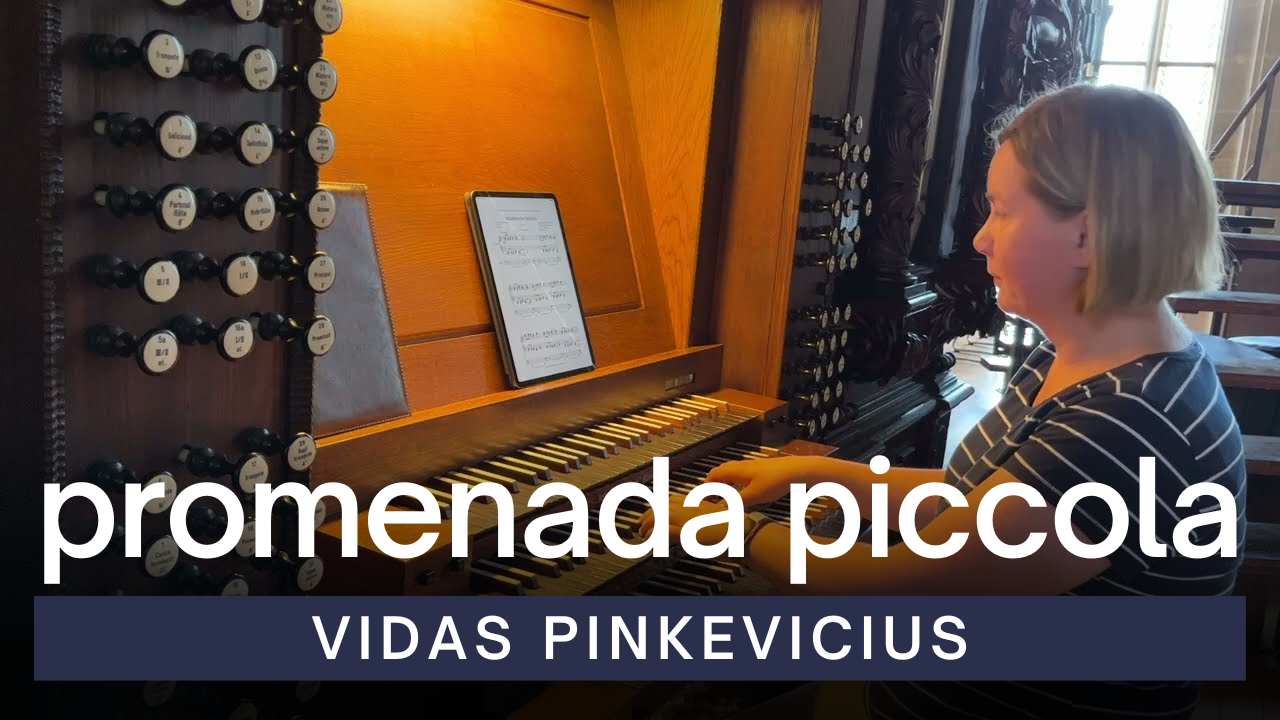
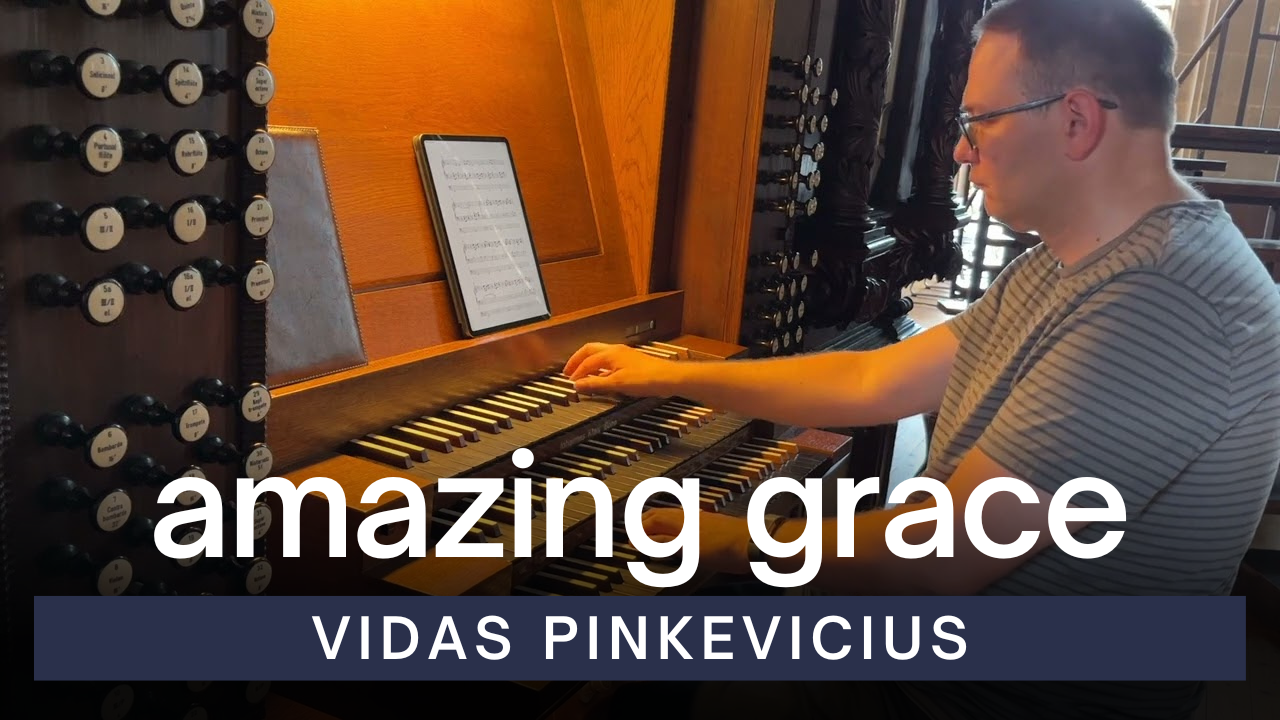
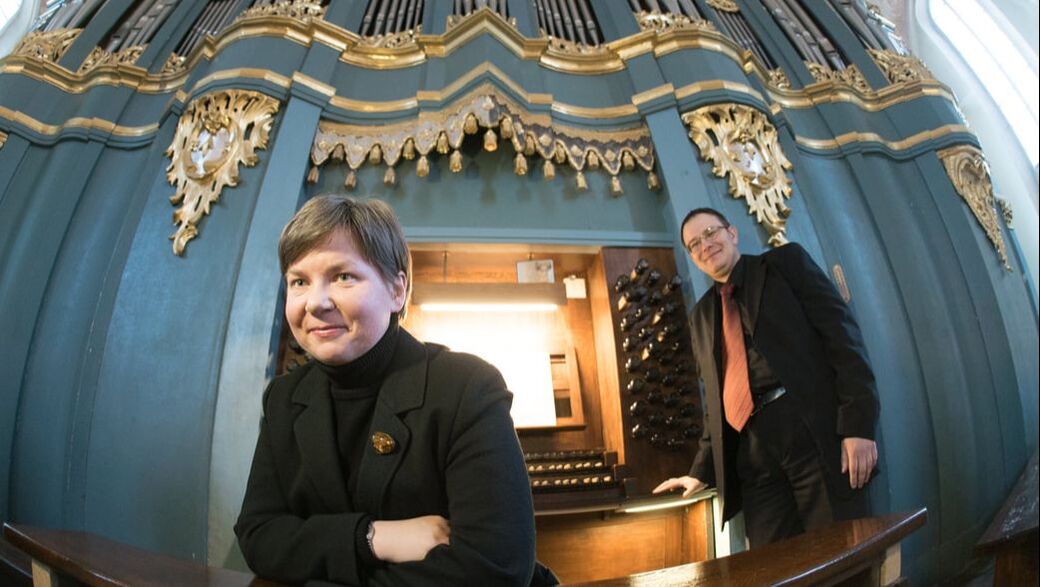
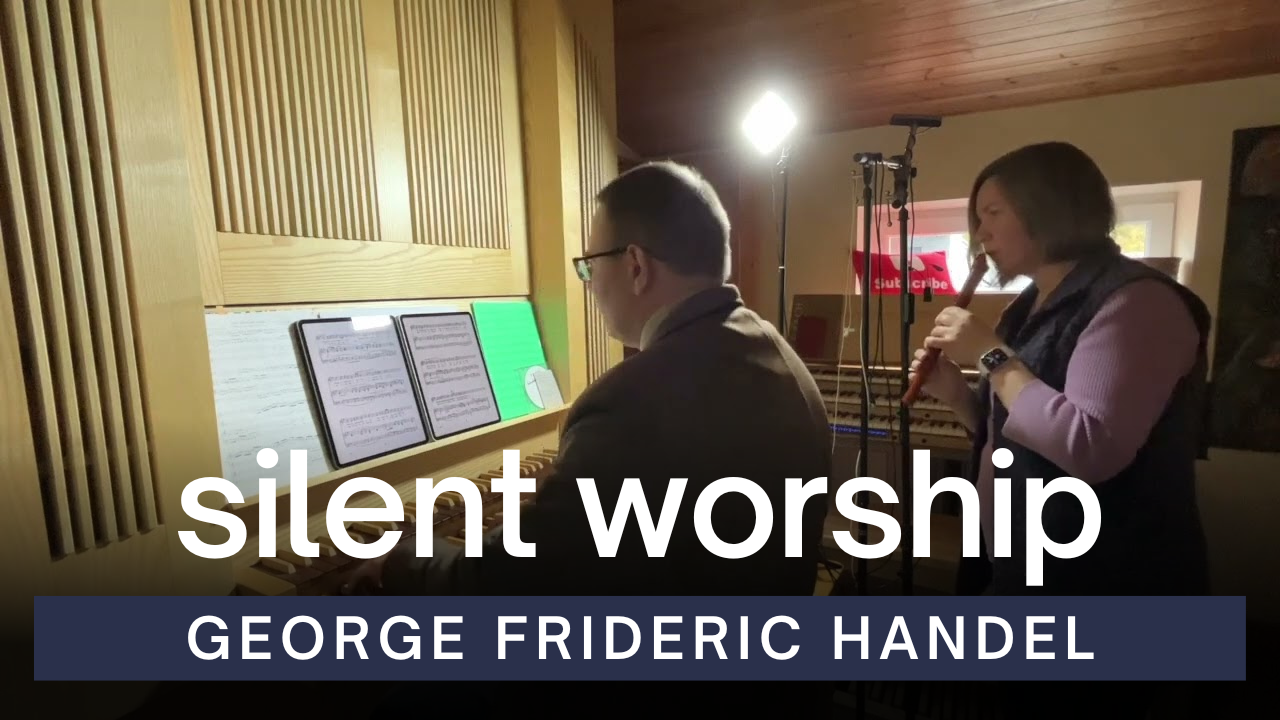
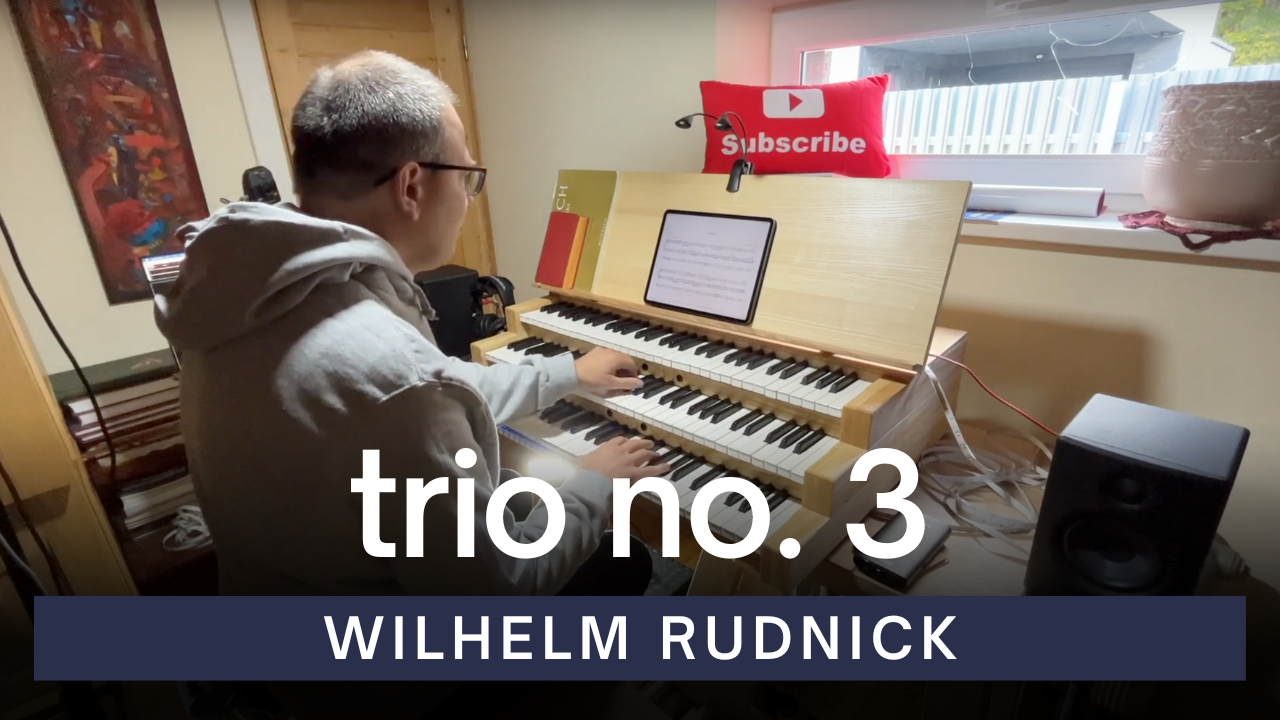
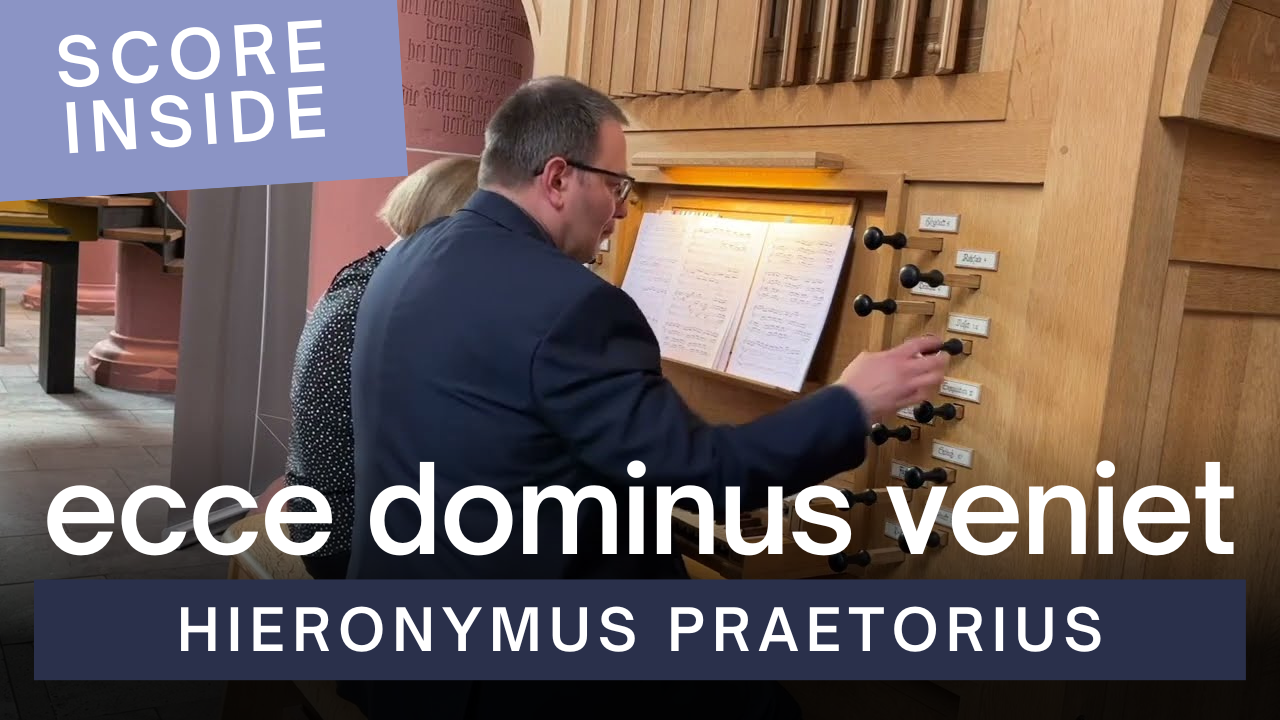
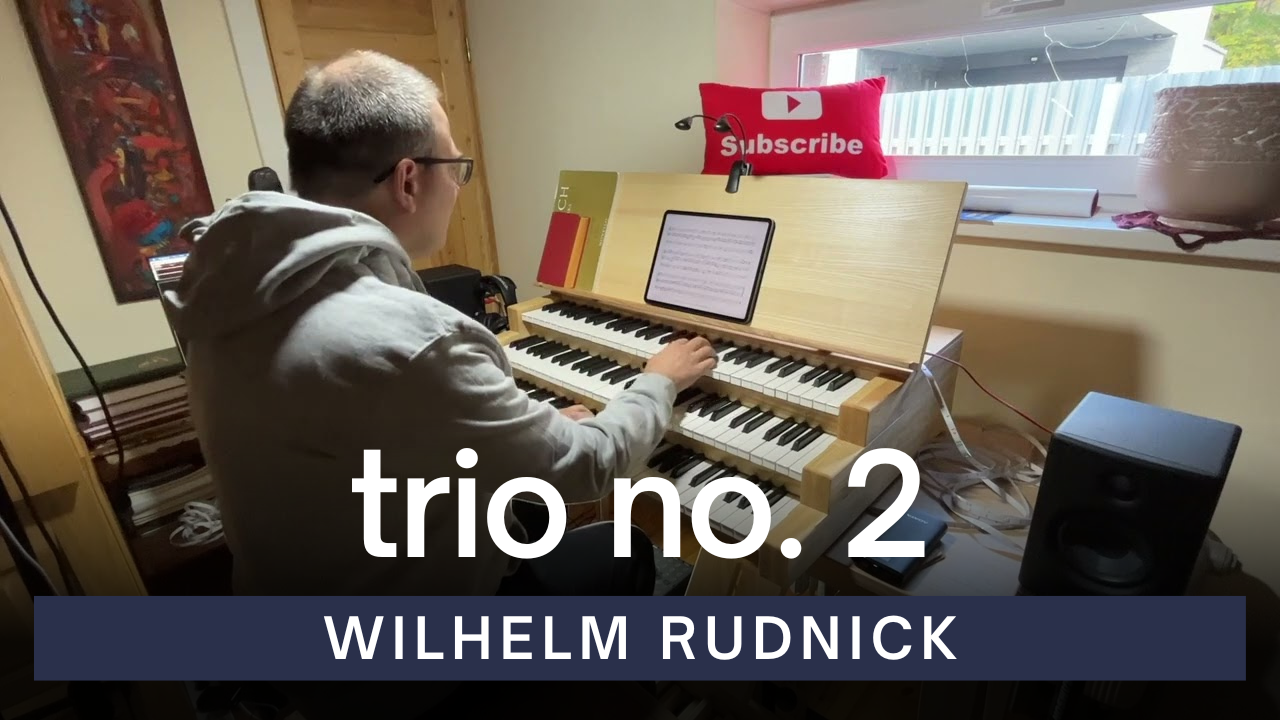
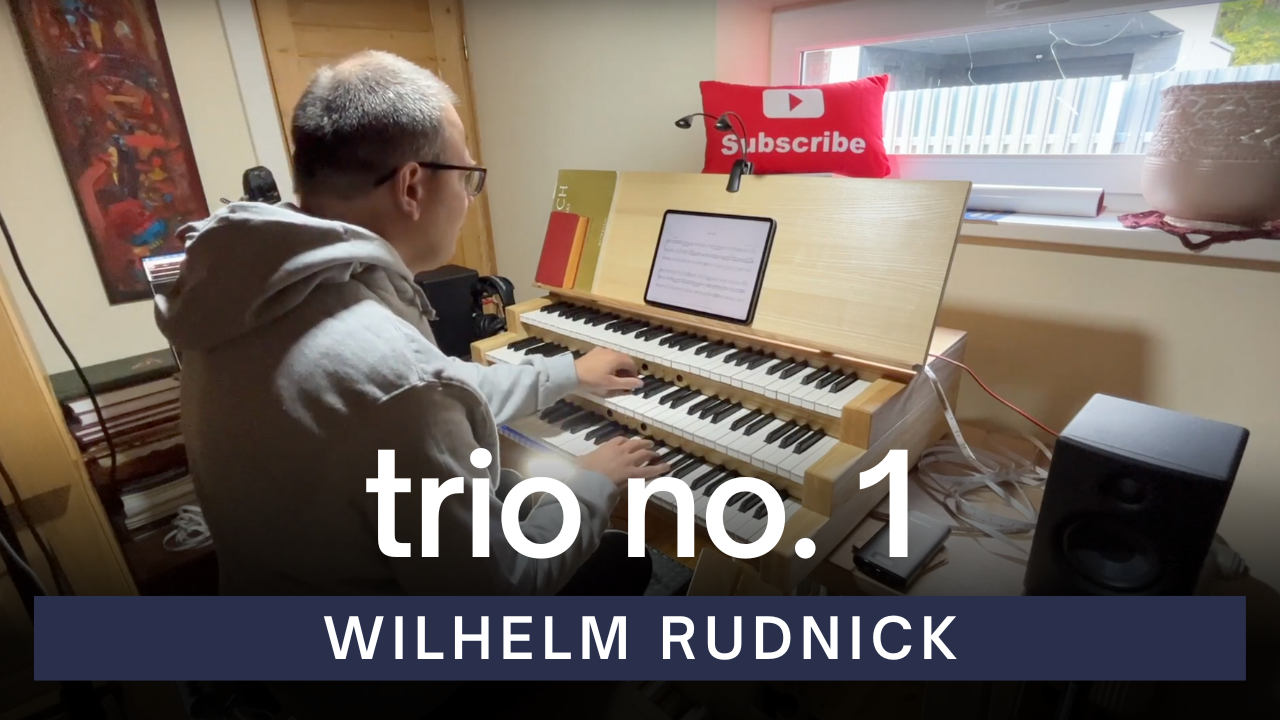
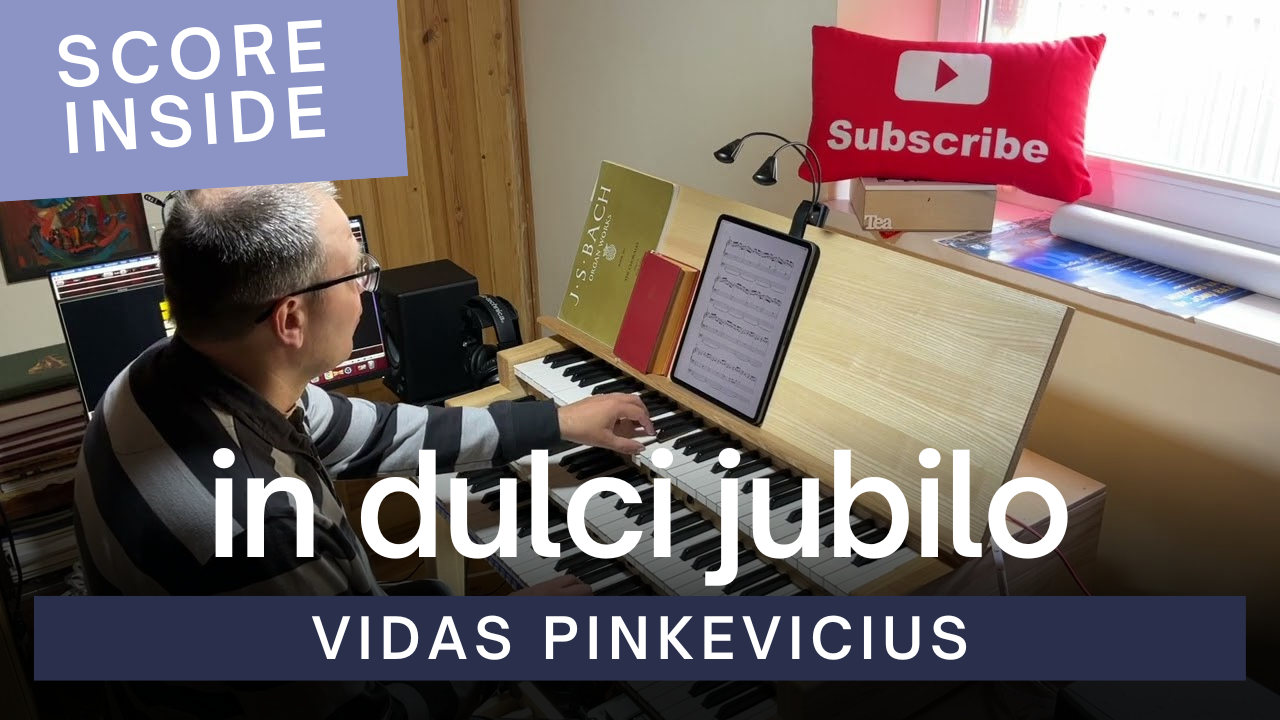
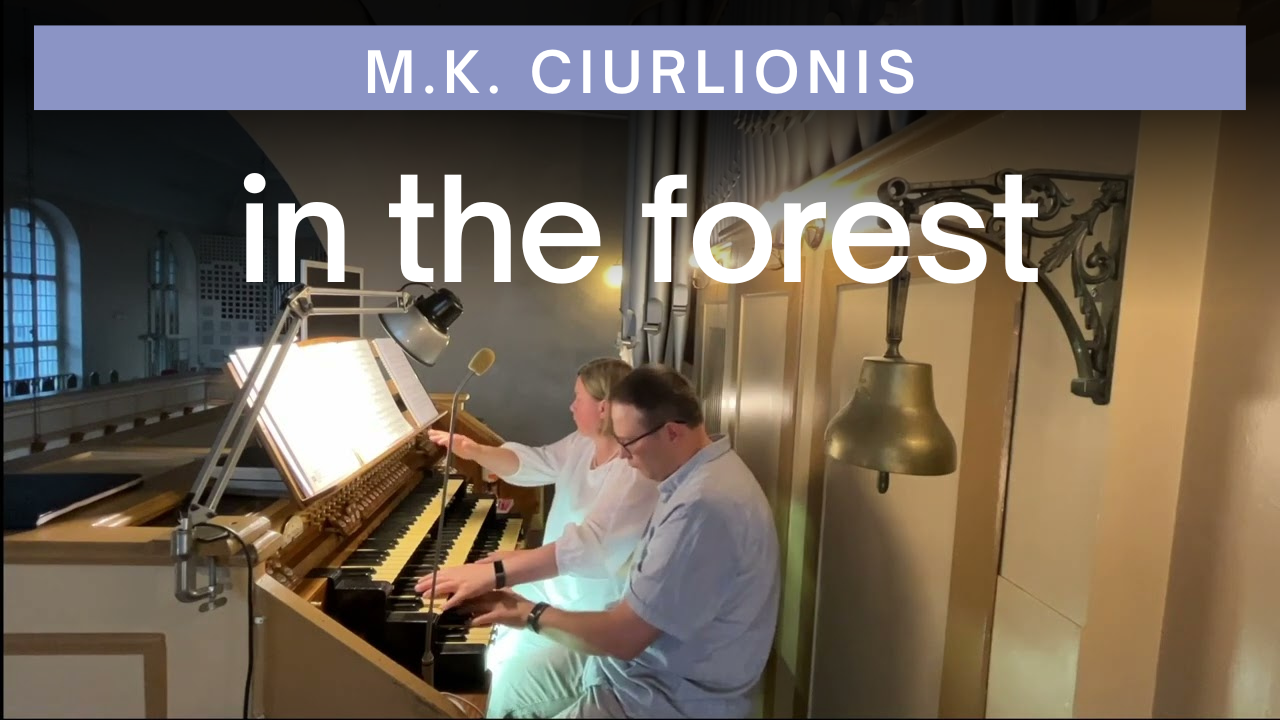



 RSS Feed
RSS Feed